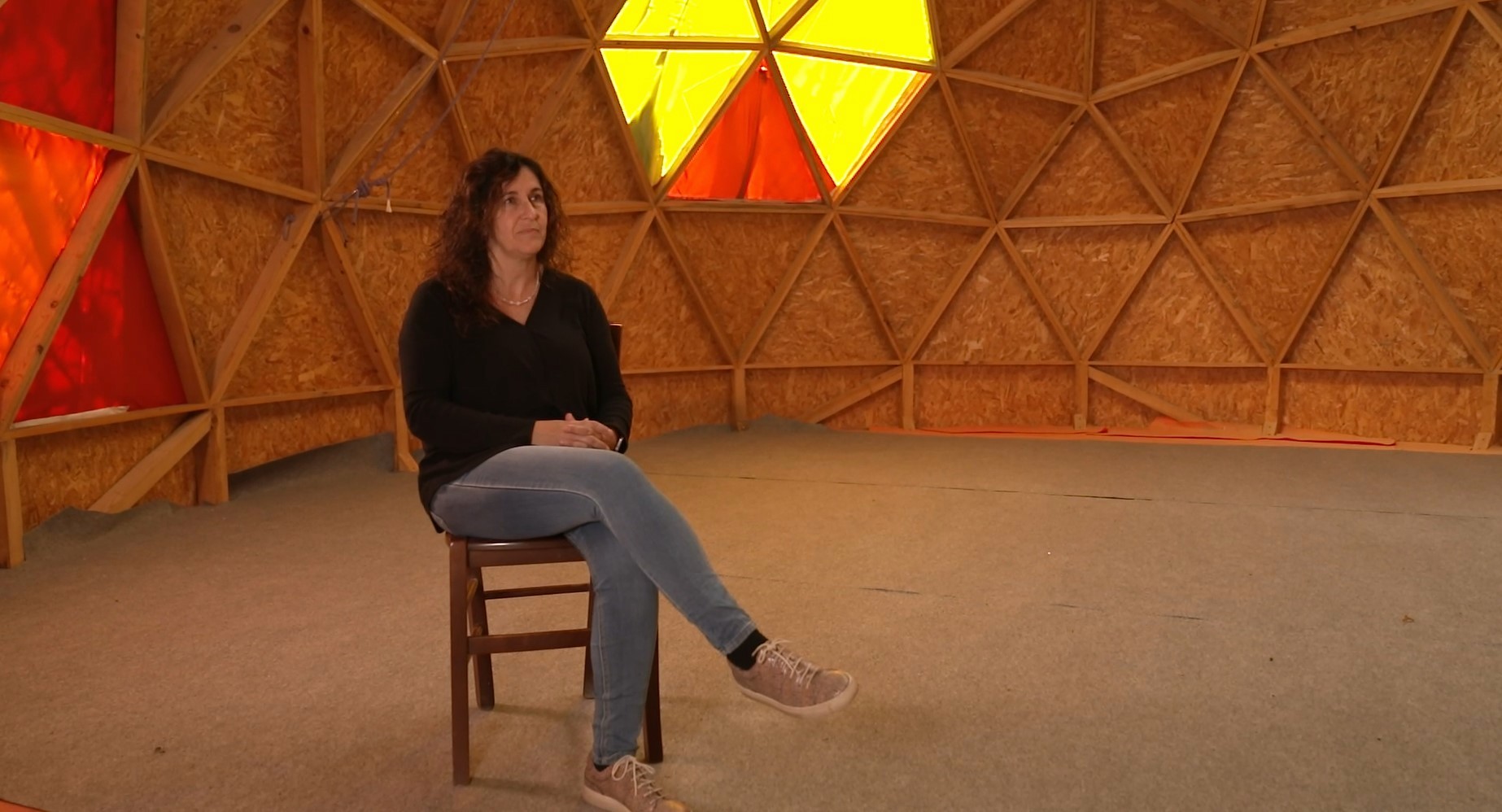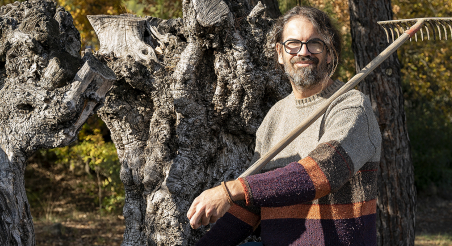Begoña García (Riba-roja d'Ebre, 1972) is the current manager of the Intercounty Socioeconomic Initiatives Consortium and the main promoter of Cowocat Rural, a cooperation project in which the 11 Local Action Groups of Catalonia participate. Originating on the banks of the Ebro River, the initiative aims to promote teleworking as a key tool for rural development.
Coworking allows individuals to share a workspace with other professionals and become part of a community that can mutually enrich their projects. We spoke to her to understand what role a movement that was born in large globalized cities plays in the local world.
What does coworking mean? Is it a philosophy, a way of working or a way of living?
Coworking is a new way of working that brings together people who share a professional space. The original users were always independent professionals, freelancers or companies, but with the pandemic, this has evolved and now we find many people working in different fields; even public administration workers. This shared space can be physical or virtual, but the important thing is that it allows individuals to develop their projects and ally with other professionals to promote joint initiatives.
What impact do coworking spaces have on the communities where they are located?
Mainly, rural coworking spaces are spaces for local dynamism. Firstly, they are spaces that attract people with new project ideas, and this activates the local economy. And secondly, they encourage many municipalities to develop services that were not previously offered. Professionals who decide to work in a rural coworking space can offer other services that complement the activities that are already being carried out in that territory.
«Rural coworking spaces are spaces for local dynamism» Begoña García
Why is collaborative work so important? What does working in a coworking bring individuals that working from home does not?
Working together makes us feel more supported in the decisions we make. Most people who end up using a coworking space are people who have been telecommuting for a while and feel a little lonely. Their interactions with other individuals are often limited to times when they go shopping or take the children to school, and co-working spaces allow them to connect with other professionals. Also, if bigger and more complex projects come their way, they feel empowered to tackle them because they know other people that can complement their own skills.
What does the coworking sector need in the coming years to be able to grow, evolve and incorporate more spaces? What problems is the coworking sector currently facing in the rural world?
I think there are two very important factors if we want a co-working space to be successful. First, there must be a community builder. Also, that person needs to make things happen in that space and make those things interesting enough to attract talent there and help retain it. If this is not achieved, the infrastructure ends up being just an internet connection point where people go, do their work and leave when they are done. Acting in this way does not allow you to enjoy the benefits of collaborative work.
The coworking movement in Catalonia, how is it doing? How has it evolved in recent years? Do you know if there is a growing trend of coworking spaces?
The pandemic has done a lot of damage on a general level, and obviously to coworking spaces as well. But I believe that, at the same time, it has allowed many companies to reflect on the high cost of the spaces they rent in the city and that they could perhaps save if their staff continued to work remotely. Many companies are considering not re-renting these spaces and choosing to distribute their workers in coworking spaces that are close to home. Doing so improves the quality of life of workers and favours family reconciliation. In addition, working in a coworking space presents other interesting advantages: for example, in matters of occupational safety and cyber security.
Where does the idea of rural coworking come from? At an international level, is there a clear benchmark?
The City Council in Riba-Roja d'Ebre was a pioneer in this aspect, making available to its inhabitants a pleasant place to co-telework in 2013. At that time there was only one other coworking space in European rural areas which was driven by a local action group in France. We decided to create a transnational cooperation project where co-working spaces from different European countries are currently participating, which has allowed us to see first-hand that there are still many territories that have not realized that co-working spaces can help them recover their population. Villages where the school or the continuity of other essential public services are at risk, can attract new residents if they open co-working spaces.
«Villages where the school or the continuity of other essential public services are at risk, can attract new residents if they open co-working spaces» Begoña García
All pioneers make mistakes. What were yours?
It took us time to understand that the important thing about coworking is not the physical space, but its community. Before you put money into creating a physical space, you have to know if there are people who want to share this space and their business projects.
Coworking is a tool to attract talent to villages and small towns. Does it also help slow down rural depopulation and prevent young people from the municipality leaving to study and work in the city?
Of course! If you work through new technologies and in your municipality you have fibre and a space where you can telework and collaborate with other professionals, you may decide to stay and not leave your town.
Do you think that rural coworking spaces are encouraged enough by the administration?
In the case of Zona Líquida, the coworking space in Riba-Roja d'Ebre, the answer is yes. We are very grateful to the Government of Catalonia because it has allowed us to grow and become a benchmark at the European level.
In the years you have been working on rural coworking initiatives, what has surprised you the most?
What strikes me the most when I go to visit rural coworking spaces is the will and desire to work that the facilitators of these spaces have and the interactions they establish between them. When one of their members has a need, they immediately try to solve it, either through their own resources or through their network of contacts. They are people with a very collaborative nature and immediately support each other.
«Institutional collaboration is essential to make rural coworking spaces successful» Begoña García
The 'Rural Innova' action of the BCN Smart Rural strategy counts among its objectives the promotion of coworking in rural Barcelona and, among other initiatives, has promoted the creation of 12 spaces. How do you value this specific performance?
This action has allowed us to combine efforts between Cowocat Rural and the BCN Smart Rural project to create a community and energize the coworking spaces of the province. Institutional collaboration is essential to make these facilities successful.
— BCN Smart Rural Editorial —



